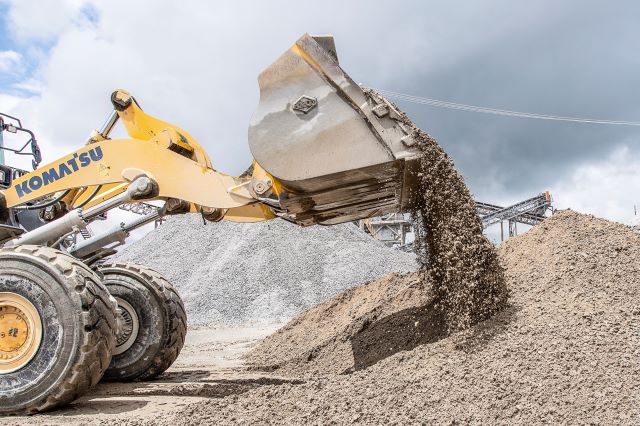With the FHWA emphasizing recycling as a pathway to sustainability, some DOTs have set targets for the use of recycled materials in their road networks. However, in order to meet those targets, construction aggregate and recycled concrete materials must be readily available and cost-effective. Gaps in the market can cause agencies to fall short of their ambitions to use recycled materials. Because of this, Heidelberg Materials North America is stepping in to be part of the solution. We believe it is up to industry members who already have deep expertise to ensure that the loop on concrete recycling gets closed.
“In Georgia, commercial projects have seen the first wave of adoption of recycled concrete aggregates,” said Tyler Morgan, Senior Sales Representative, Heidelberg Materials Southeast Agg LLC/Georgia AGG. “These projects allowed the Georgia Department of Transportation (GDOT) to become familiar with the process of using RCA and see its success. As a result, Heidelberg Materials worked with the DOT to change their specifications. Existing versions of the specification set graded aggregate requirements to be a blend of not more than 20 percent maximum recycled crushed concrete incorporated with virgin aggregates, but amended specifications will allow a 30 percent of recycled crushed concrete.”
As with any material used, RCA must be approved by the DOT’s Office of Materials and Testing, but we support GDOT by doing separate testing. For example, we ensure that the aggregate stays within gradation requirements in a sieve test. We also check to make sure no unknown source material, such as contaminants from a gas station or oil changing location, are in the recycled aggregate. Similarly, we confirm there are no organics, like wood or grass, in the material.
“Environmental product declarations could become a driver of RCA adoption,” said Morgan. “Moving forward, all subcontractors on a project will have to ensure that the materials they are using meet quantified metrics.”
Overall carbon accounting can be influenced by recycling concrete, sometimes in ancillary ways. For example, incorporating recycled products into concrete projects can reduce truck miles traveled, subsequently reducing fuel use and CO2 emissions associated with materials sourcing. This is because sales yards for recycled materials are usually located much closer to urban centers than are quarries producing raw materials. Travel distance can also be reduced—and fuel savings achieved—at a project's end-of-life, since recycling locations tend to be easier to access than landfills when it comes to disposing of clean construction or demolition debris (CCDD). When landfills do end up receiving CCDD, we are stepping in to retrieve some of those materials, helping ensure usable concrete and asphalt rubble are recycled.
Incentives are already being put in place to increase the use of RCA. By forming partnerships across the value chain, we believe success will happen sooner.


